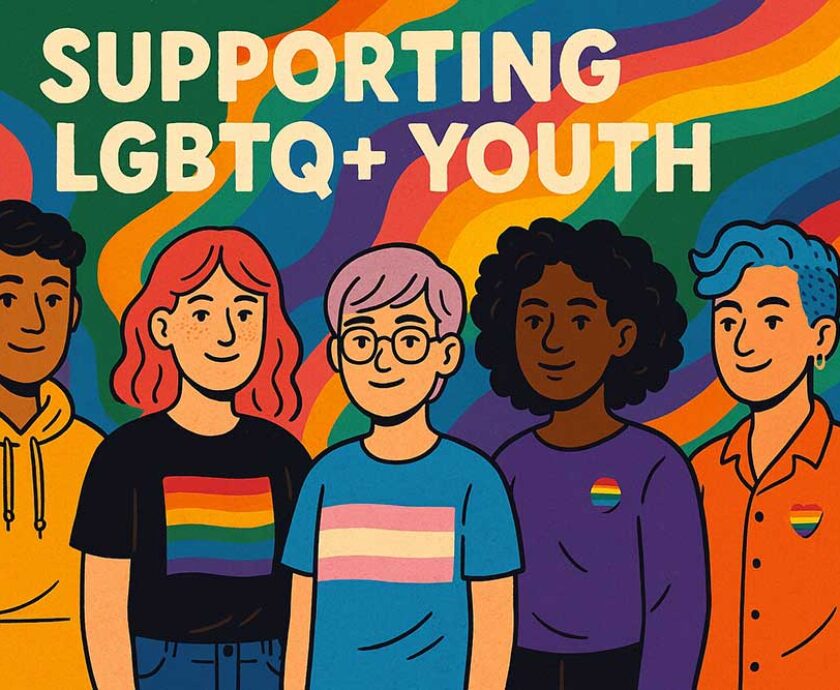A dual diagnosis is given to a child, adolescent, or adult with a mental health illness and a AUD/SUD. Dual diagnosis patients have co-occurring disorders. Adolescent mental health issues that often co-occur with alcohol and substance use disorders include:
- Depression
- Insomnia
- PTSD
- BPD
- Misconduct
- Disobedience
- Anorexia
Experts believe that 60-75% of adolescents with alcohol or substance use disorders also have mental health disorders. Co-occurring illnesses confront teenagers and mental health professionals for various reasons.
First, mental health and alcohol/substance use illnesses share symptoms. Second, people with co-occurring disorders commonly self-medicate with alcohol and drugs. Finally, alcohol and drug use can worsen mental health condition symptoms, which can lead to increased usage.
Self-Reinforcing Cycles
This creates a cycle of symptom/self-medication/symptom/self-medication that’s hard to stop, and diagnosing co-occurring disorders is difficult because their symptoms can mask those of mental health disorders and vice versa. That’s not the same as above. As mentioned above, alcohol/substance use disorders and mental health issues have similar symptoms and may make each other invisible, causing physicians to miss one while focused on the other.
Clinicians and co-occurring illness patients often struggle to answer the question: which came first, the mental health disorder or the alcohol/substance use disorder? The answer is not always clear. However, with proper treatment and diagnosis, an adolescent with co-occurring AUD/SUD and mental health disorders can overcome both conditions. Treatment and diagnosis will follow.
Integrated Co-Occurring Disorder Treatment
Adolescents with co-occurring addiction and mental health disorders struggle to acquire a proper diagnosis. Diagnosing addiction and co-occurring mental health issues takes time for the following reasons.
- After abstaining from alcohol or drugs, SUD or AUD symptoms may develop.
- Clinicians, adolescent clients, and families must adjust the treatment strategy as mental health condition signs occur.
- Clinicians at the treatment center or provider must be trained, experienced, and skilled to treat both conditions.
Dual-diagnosed adolescent parents must understand that treatment works. An integrated therapy paradigm that treats the complete person is the best way to manage co-occurring diseases, according to research.
What Can a Parent Do for the Child?
If you think your kid has both a mental health issue and an addiction problem, have them assessed by a psychologist, psychiatrist, or other mental health expert, especially one who treats addiction and mental health disorders in adolescents. A biopsychosocial profile will give a mental health expert a detailed view of your teen’s issues.
After a comprehensive evaluation, your kid may be recommended for therapy. Outpatient counseling twice a week may be enough. However, dual diagnosis may prevent outpatient therapy from helping your teen heal and move forward.
Your child’s therapist may suggest more extensive treatment. Intense treatment may include:
Intensive Outpatient Programs (IOP)
This treatment goes beyond weekly therapy or drug and alcohol counseling. Programs determine treatment duration and frequency. Teens in intensive outpatient programs live at home, attend school, and receive 3 hours of treatment per week.
Partial-Hospitalization Programs (PHP)
This treatment goes beyond intensive outpatient. Like IOP, program-specific therapy amounts and timing vary. Adolescents attend school part-time and receive daily treatment for four hours. If needed, they live in a sober living facility.
Residential Treatment Centers (RTC)
In residential treatment centers, your child lives at a non-hospital treatment center. Depending on your child’s progress, this rigorous treatment may span 28–120 days. Residential alcohol rehab has many benefits, including full-time alcohol therapy and a drug-free atmosphere. Your child can focus on healing without drinking.
Adolescents with dual co-occurring disorders may benefit from IOP, PHP, and RTC regimens.
Psychiatric Hospitalization
If your teen is suicidal, insane, or needs 24/7 medical supervision due to heavy alcohol consumption, they may need hospitalization. Heavy binge drinking, an increasingly harmful practice among teens and young adults, may require medical monitoring. Medical monitoring may be needed for potentially life-threatening alcohol withdrawal.
These levels of care – excluding psychiatric hospitalization, which prioritizes urgent safety and stability – typically use one or more of the following therapeutic approaches:
- Personal counseling
- Counseling groups
- Counseling families
- Exercise and mindfulness are experiential
- Alcoholics Anonymous or SMART Recovery
Your teen’s treatment depends on the center and degree of care.
Supporting Your Child
Supporting and encouraging your adolescent with a dual diagnosis and extensive treatment is crucial. Recovering can affect your relationship with your teen. You can support your teen and ease recuperation by doing these:
- Communicate
- Learn their diagnoses
- Discover mental health and substance use disorders
- Participate in therapy and recovery
- Listen actively
- Keep showing up and being sincere, sympathetic, and kind, and they’ll eventually open up
- Recover at home. Consider removing alcohol and drugs from your home
- Family alcohol consumption may affect your teen’s alcohol use disorder
- Be an example for your teen
- Be tolerant if your teen relapses. Avoid criticizing or overreacting
Understand that co-occurring disorders are hard to control. Your teen’s troubles don’t indicate a problem. They’re fighting two chronic, recurrent diseases. Be willing to address your personal issues that may cause conflict or stress with your teen or negatively affect your family dynamic.
Unconditional love supports your child during treatment. Open, honest, and direct communication follows compassion and empathy. Dual-diagnosed teens need you. They need your advice, wisdom, and support. They need your unconditional love and support through the ups and downs of rehabilitation. Teens who know their parents support them are more likely to recover.




